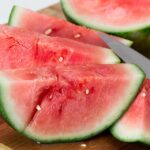Diet vs Nutrition: Understanding the Difference for a Healthy Lifestyle
When it comes to leading a healthy lifestyle, there’s no shortage of information out there. But, with so much information available, it can be difficult to sort through the noise and understand what’s really important. One of the biggest questions people have is the difference between diet and nutrition. In this article, we’ll break down the differences between the two and provide some tips for incorporating them into your daily life.
What is Diet?
Diet refers to the food and drinks we consume on a daily basis. It’s a term that’s often associated with weight loss and can be restrictive in nature. Many diets focus on cutting out certain foods or food groups, such as carbs or fats, in order to promote weight loss. While some diets may be effective in the short-term, they can be difficult to sustain over a longer period of time.
What is Nutrition?
Nutrition, on the other hand, refers to the nutrients we get from our food. It’s a broader term that encompasses all of the vitamins, minerals, and macronutrients (carbs, fats, and proteins) that our bodies need to function properly. Nutrition is focused on providing our bodies with the nutrients they need to maintain good health and prevent disease.
The Importance of Balanced Nutrition
Balanced nutrition is essential for maintaining good health. Our bodies require a variety of nutrients to function properly, and a lack of any one nutrient can lead to health problems. For example, a lack of vitamin C can lead to scurvy, while a lack of calcium can lead to weakened bones. By focusing on balanced nutrition, we can ensure that our bodies are getting all of the nutrients they need to function properly.
Tips for Incorporating Balanced Nutrition into Your Diet
1. Eat a variety of foods. Eating a wide variety of foods ensures that you’re getting all of the nutrients your body needs.
2. Focus on whole foods. Whole foods, such as fruits, vegetables, whole grains, and lean proteins, are packed with nutrients and are generally healthier than processed foods.
3. Don’t be afraid of fat. Healthy fats, such as those found in nuts, seeds, and avocados, are essential for good health.
4. Eat in moderation. While it’s important to eat a variety of foods, it’s also important to eat in moderation. Overeating can lead to weight gain and other health problems.
5. Stay hydrated. Drinking enough water is essential for good health. Aim for at least eight glasses of water per day.
In conclusion, while diet and nutrition are often used interchangeably, they are not the same thing. Focusing on balanced nutrition is key to maintaining good health, and by incorporating the tips above, you can ensure that your body is getting all of the nutrients it needs. Remember, there’s no one-size-fits-all approach to nutrition, so listen to your body and make choices that work for you.




